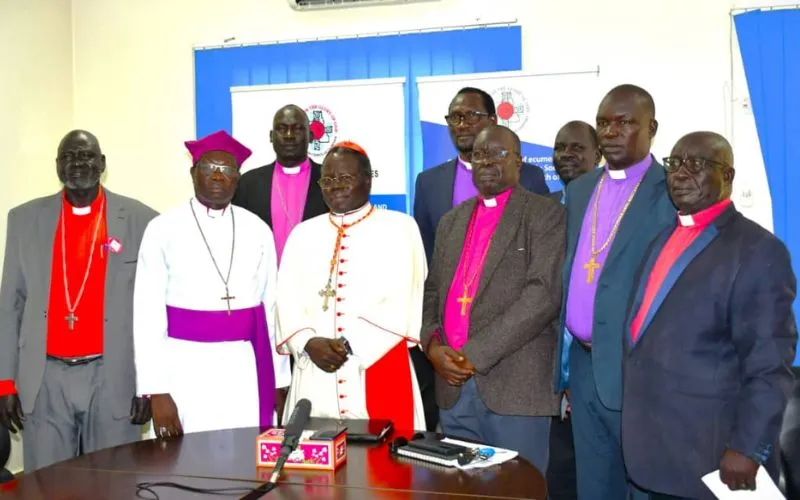Juba, 18 September, 2024 / 10:36 pm (ACI Africa).
Politicians in South Sudan are not showing the will to remove the obstacles that are impeding general elections in the East-Central African nation, Church leaders in the country have said.
In a statement shared with ACI Africa following their September 17 meeting at their headquarters in the capital Juba, members of the South Sudan Council of Churches (SSCC), who include representatives of the Sudan Catholic Bishops’ Conference (SCBC) observe that the reasons for the numerous extensions of mandate of the South Sudan’s Revitalised Transitional Government of National Unity (RTGoNU) have remained unaddressed over the years.
“The Church has been keenly following the implementation of the roadmap; all the reasons highlighted for this extension were all stated during the previous extensions; the Church realized that, because of lack of political will, all the key important provisions in the roadmap remained unimplemented,” the SSCC members say.
In the latest extension made public on September 13, South Sudan’s general elections that had been slated for this December were postponed by two years to 2026.
South Sudan’s Presidential Adviser on National Security, Hon. Tut Gatluak, lauded the extension, describing it as beneficial to the process of implementing the September 2018 Revitalized Agreement on the Resolution of Conflict in South Sudan (R-ARCSS).








